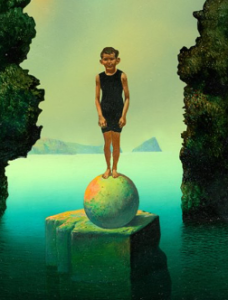Memories are stories we tell ourselves.

“When I was younger, I remember how…” We cherry-pick. We have to. Otherwise, we’d remember what we wore and ate for lunch a day before our 6th birthday, and the week before that. TMI.
So, we edit. Memory is a highlight reel we have archived for ourselves. I remember so many details, for instance of my 12th summer, but almost nothing of my 11th. I don’t know what my mind’s criteria were for deciding what to keep and what to let go.
We move through the years, as from house to house. Some things making it into the box and others not. A treasure one day, something less the next. Wilted roses. Others, indestructible as diamonds.
Some memories, the happiest, we keep because we long to. A grandparent’s smile. A familiar kitchen smell. A special holiday. We cling to those as a man or woman at sea might cling to a floating piece of wood. They preserve us.
Other memories we keep because we must. I will never touch a hot stove again because I remember what happened the last time I did.
I write this because my own children now are gathering the early memories they will one day look back at. Lukas, 12, Alex, 11, little Katarina, 9, their world of family, home, school, holidays, growing swiftly by the day. Inevitable first glimpses of a wider world beyond.
Covid fears and precautions. Lines of Ukrainian refugees at the train station near our home in Berlin. Grownups talking of Russian gas, inflation, melting glaciers, and drying rivers. A child’s world does not remain small for long.
I’m an older father and grew up in a golden time. Born 1956, my first indelible memory of a wider and more complicated world was the day in November 1963 when I saw my mother crying on the front porch and asked her what was wrong.
“Oh, darling, someone just shot the President.”
My wife Katarina is much younger than I am and grew up in Poland. Her first wider-world memory is of the adults in her family celebrating something called the fall of the Iron Curtain.
A few days ago, our daughter caught my wife looking sad and asked her what was wrong. My wife’s answer struck me like a thunderbolt, beginning exactly as my own mother’s long-ago answer to me.
“Oh, darling, the Iron Curtain is going back up.”
“What’s an Iron Curtain?”
Lukas came home from school not long ago and asked me if I think there will be World War III.
We cannot calm the wider seas for our children. But if we and they are lucky, we can give them a safe harbor in which to prepare for the long voyage ahead. Also, bequeath them memories and feelings that will remind them always of why they must cut through the waves and see what’s awaiting them after the storm.
A bedtime story. A game in the garden. Cookies baked together. So much more than mere moments. Bubbles in the bath won’t last. But the memory of those bubbles can last a lifetime.
Berlin, July 14, 2022
11,696 Total Views, 31 Views Today






